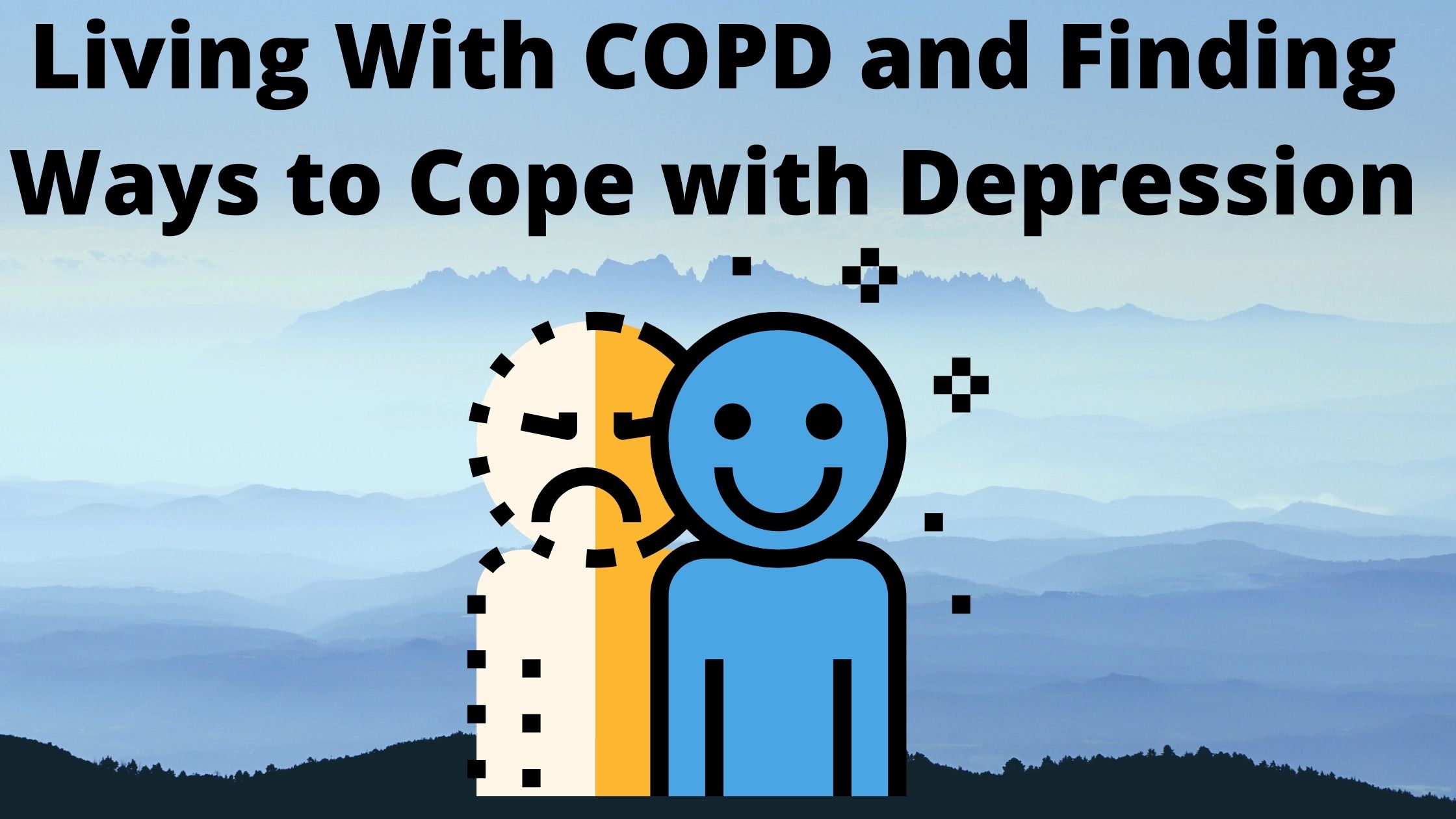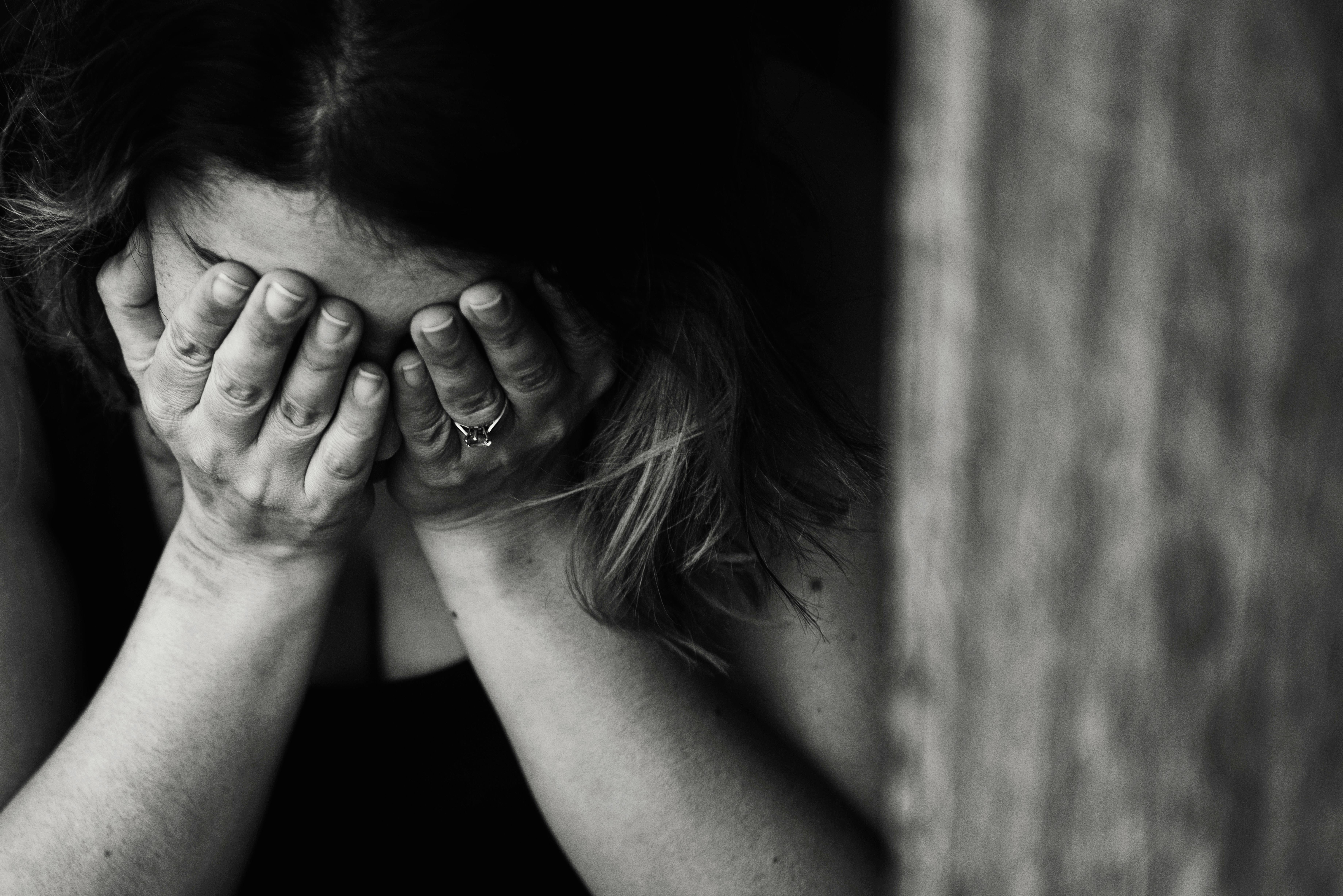
Getting diagnosed with COPD and watching your body change can be a disheartening thing to go through. This, along with the symptoms of COPD, make depression a reality for a large number of COPD patients.
It's not too difficult to see why; COPD can lead to weight loss, fatigue, sleep disorders, poor nutrition, and a variety of other uncomfortable symptoms. These ailments can be distressing on their own, leading to health anxiety, a negative outlook, and a feeling of loss of control over one's life.
According to some studies, up to forty percent of COPD patients suffer from depression. What's worse, many cases go untreated, which makes patients more likely to suffer a quicker physical decline and death.
But, while COPD can be difficult to cope with, there are plenty of options for support and treatment that can help you take back control over your life. Even though depression can make obstacles seem too difficult to face, the truth is that you can find the power within yourself to overcome them.
It is important to remember that it's more than possible to live a happy and fulfilling life despite the hardships that come along with COPD. If you can shake yourself free of anxiety and depression, you'll find that you have the ability cope in healthy ways and confidently meet any challenges that come your way.
It's hard to see the light when you are in the midst of depression and everything seems hopeless and bleak. That's why it's so important to recognize the signs of depression and seek treatment, and in this article we're going to show you how.
In the next sections, we'll show you how to identify depression and explain how it affects people with COPD. Then, we'll show you how to utilize available mental health resources and how to use a variety of practical techniques to help yourself out of depression.
What is Depression?
The term “depression” is often used loosely in casual conversation, but in reality, it is a serious medical illness. It is much more than just feeling a little down for a few days; it's a deep state of sadness and helplessness that affects many aspects of sufferers' lives.
Depression is often marked by hopelessness, lack of motivation, and lack of interest in activities that you used to enjoy. Depression often interferes with your ability to function and participate in activities at work, home, and with friends.
People who are depressed are also more at risk for a variety of other health problems, including obesity, substance abuse, and premature death. In general, people who are depressed have difficulty maintaining healthy habits and lead a significantly reduced quality of life.
Depression should always be taken very seriously and should never be ignored. If you or someone you know is showing the warning signs of depression, you should encourage them to seek help as soon as possible.
Symptoms of Depression

The main characteristics that separate clinical depression from normal sadness or negative moods is its severity and its duration. Everyone has a bad day or bad week every once and awhile, but people who suffer from depression often experience weeks or months of despair along with a variety of noticeable physical symptoms.
Here are some of the most common symptoms of depression:
- Sadness
- Emptiness
- Hopelessness
- Anxiety
- Helplessness
- Feelings of worthlessness
- Feelings of guilt
- Difficulty concentrating
- Difficulty sleeping
- Irritability
- Loss of appetite or increase in appetite
- Fatigue
- Lack of interest in hobbies and activities you used to enjoy
- Thoughts of death or suicide
How Depression Affects People with COPD

If left untreated, depression in people with COPD can significantly increase their risk for physical decline. It can increase patients' risk of exacerbations, loss of physical mobility, malnutrition, and even death.
There are many reasons for these risks, most of which have to do with changes in behavior and motivation that happen to COPD patients who are depressed. For example, depression can affect both your appetite and your sleep quality, leading to malnutrition and sleep deprivation. This, in turn, weakens your body, makes COPD symptoms worse, and depresses your immune system, making you more prone to exacerbations and hospitalizations.
Studies also show that people with COPD who are depressed are more likely to be hospitalized, less likely to adhere to COPD treatments, and have a much higher risk of death. They are also more likely to smoke and suffer from an overall decreased quality of life.
One of the most damaging effects of depression is how it can take away your motivation to do things that make you healthy and happy. Many people who are depressed stop exercising, eating, and socializing, which are important to living a healthy life with COPD.
There is hardly anything more essential for keeping yourself healthy with COPD than following your treatment plan, eating a healthy diet, and, especially, getting plenty of exercise. However, depression can take away your motivation to do all of these things, causing you to skip meals, workouts, and medication doses. This is a large part of the reason why many depressed COPD patients suffer a more rapid physical decline.
Another reason is the fact that being depressed can make it much more tempting to reach for unhealthy coping mechanisms like cigarettes and other drugs. Since smoking is one of the most damaging things you can do to your body when you have COPD, depression can be even more damaging to patients who are former smokers or who are currently trying to quit.
For all of these reasons, it's vitally important for COPD patients who suffer from depression to seek support and treatment as early as possible. It's certainly not something you should ever take lightly or ignore, as it could have huge and irreversible effects on your health.
Everyday Techniques for Reducing Depression for People with COPD

Everyday activities like diet and exercise can have a huge impact on how you feel. Building healthy habits in these areas is an important first step to breaking free from depression and getting yourself back on track to living a healthy, fulfilling life.
Exercise More

When you are feeling depressed, exercising and being active might sound like the last thing in the world that you want to do. However, getting out of bed every day and doing some physical activity can actually improve your depression, not to mention that it's absolutely necessary to prevent early death from COPD.
It can be difficult and disheartening to exercise when you're experiencing COPD symptoms like breathlessness and wheezing, which on its own can contribute to depression and exercise avoidance. However, skipping exercise will only make that same problem worse, making your body weaker and your lungs decline quicker.
On the other hand, forcing yourself to get out, move your body, and increase your fitness can do wonders for both your body and mind. It not only stimulates your brain and promotes a more positive mood, but it can also increase your physical strength and mobility, allowing you to breathe better, do more, and have more energy.
Here are some of the benefits of exercise for people with COPD:
- More efficient use of oxygen
- Stronger breathing muscles and using less energy to breathe
- Reduced shortness of breath
- Reduced anxiety and depression
- Improved self-esteem and self-image
- Increased physical endurance
- Increased energy levels and reduced fatigue
- Improved sleep quality and reduced insomnia
- Increased cardiovascular health and fitness
- Improved muscle strength

It's not hard to see how getting regular exercise can help with depression caused by COPD. As you see your physical strength and condition improve, you are bound to feel more confident and more optimistic about your future.
Committing to exercising even when you feel down will also allow you to stave off some of the most devastating effects of depression for people with COPD—loss of physical strength and quicker lung function decline. It can also put you in a much better place both physically and mentally to cope with and manage your disease.
That's why it's so important to exercise according to your COPD treatment plan, even when it's hard and you don't feel like it. As soon as you start to neglect your exercise plan, you can quickly fall into a negative downward spiral, where it becomes more and more difficult to exercise.
If you find exercise difficult or don't know where to start, talk to your doctor about joining a pulmonary rehabilitation program. There are also many resources online, such as the Cleveland Clinic, that offer advice and ideas for specific exercises for people with COPD.

Here are some general tips and resources to help you exercise with COPD:
-
Start small and work your way up. Start by walking short distances or doing low-impact strength exercises, and increase the distance you walk and the number of repetitions you do by just a little bit every week. The improvements you make will motivate you to keep going and help you work up to more activity over time.
-
If you have limited strength or physical mobility, try starting out with some chair exercises. These allow you to work out different parts of your body while sitting in a chair, which helps with balance and reduces the amount of strength you have to expend while still toning your muscles. Check out this comprehensive guide for a huge list of chair exercises with accompanying illustrations and instructions for how to perform them.
-
Stretching exercises are easy to do and can improve your strength, mobility, and range of motion. You should always stretch before you workout, but you can also try stretching in the mornings and evenings to get some extra activity and keep yourself limber throughout the day. Check out this guide from Lung Foundation Australia that includes instructions for how to do a variety of different stretches.
-
Use breathing exercises, such as pursed-lips breathing and diaphragmic breathing to help with breathlessness and wheezing when you work out. You should also keep your bronchodilator, supplemental oxygen, and any emergency medications with you in case you need them. Check out this guide from the Cleveland Clinic on how to manage your breathing while you exercise.
- Try joining a fitness class or trying an exercise like yoga or Tai Chi. Having instruction (at a gym or from an exercise tape) can help you get started more easily and keep you motivated to continue. Yoga and Tai Chi are especially good exercises for people with COPD because they incorporate breathing control and meditation in their routines.
Eat Well

When you are depressed, you might not feel like eating as much as you should. It can also make you feel sluggish and unmotivated, making you more likely to reach for convenient, unhealthy options, like fast food, instead of making nutritious meals at home.
But when you have COPD, proper nutrition is vital for keeping your body and lungs healthy. Lungs affected by COPD use up more energy when you breathe, meaning that many patients actually need extra calories to keep their lungs working efficiently.
Eating well is also important for improving depression, as the foods you eat can have a huge impact on both your body and your mind. If you eat unhealthy foods or let yourself become malnourished, you will feel even more tired, fatigued, and depressed.
A variety of nutritional deficiencies and imbalances can contribute to depression, including deficiencies in fats, amino acids, Vitamin D, and blood sugar imbalances. However, proper nutrition can help restore balance to your body and mind, giving your brain the vitamins and nutrients it needs to keep you happy and healthy.

Unfortunately, the symptoms of COPD often make it difficult to maintain a healthy weight and get enough nutrition. However, having a healthy BMI is important for managing the disease; obese COPD patients face a wide variety of health risks, while underweight patients are also more likely to experience more rapid physical decline and other health complications.
Some COPD patients find it difficult to get enough to eat because of COPD symptoms like breathlessness, which often are worse on a full stomach. If you are also depressed, you may experience a reduced appetite, reduced motivation, and reduced enjoyment from the taste of food, which makes it even more difficult to get enough calories and nutrients every day.
If you have COPD, you should think of every meal as an opportunity to strengthen your body and support the health and function of your lungs. Even though it can be difficult and time consuming, it's important to eat whole, home-cooked foods as much as possible so you have maximum control over what nutrients you put in your body.

Even though it might be difficult and require some adjustments to your schedule, you can find ways to eat healthy with minimal effort and discomfort. Here are a variety of tips and techniques for eating well to improve your depression and your COPD:
-
Increasing your intake of certain foods has been shown to help fight depression. These include foods containing Vitamin D, omega-3 fatty acids, vitamin D, vitamin C, magnesium, selenium, and B vitamins.
-
Avoid sugary drinks, caffeine, and fried foods, which can contribute to depression. Instead, increase your intake of water, healthy fats, complex carbohydrates, and whole fruits and vegetables. Here is a guide from Healthline to help you choose healthy, nutrient-rich foods for your kitchen.
-
To avoid feeling uncomfortable and breathless when you eat, have several smaller meals throughout the day instead of large ones. This will help you eat enough calories without ever feeling too full.
- Prepare meals and freeze them ahead of time to eat on days when you feel especially depressed or fatigued. That way, even when you don't have the energy or motivation to cook, you can eat a nutritious, home-cooked meal with hardly any effort at all.
Get Out, Socialize, and Have Fun

Being depressed tends to cause people to isolate themselves and give up on the hobbies and activities that used to make them happy. This is partially due to a lack of energy and motivation, and partially due to a feeling of helplessness and a perceived inability to enjoy things that used to be fun.
However, even when things seem bleak, it's important not to neglect the people, hobbies, and productive activities that used to make you happy. Even if it doesn't feel satisfying right away, being social and active can improve your depression and will likely feel more satisfying with time.
Depression has an uncanny ability to make you avoid the very things that you need the most in order to break free from depression. Just remember that, even though things may seem hopeless right now, you will be much worse off if you give up and drop out of life's activities.
When you feel like staying indoors and avoiding the world, try calling up a friend or family member instead. Often, simply talking to someone else can help to pull you out of the fog and give you a more positive perspective on life.
It's okay to take days off and focus on self-care, but it's important not to let yourself stay in bed all the time and avoid the people who care about you. If you make an effort to get out of the house and spend time with family and friends, you will find it much easier to cope with depression and COPD.

And remember, it's okay to talk to your friends and family about your depression and let them know that you need support. Most people who care about you will understand and be willing to support you when you really need them.
Having a support group of family and friends and activities will give you something to get out of bed for and live for everyday. So don't let yourself become isolated from the people and things that matter in life; once you break out of your bubble, you might just start to notice all the many things that make life worth living.


